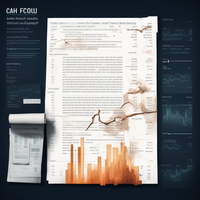Banking Products and Services

Banking products and services refer to the various offerings provided by banks to their customers. These offerings are designed to facilitate financial transactions, support savings and investment objectives, as well as meet the diverse needs of consumers and businesses. Below is a comprehensive overview of some common banking products and services.
1. Deposit Accounts
Deposit accounts are one of the primary services offered by banks, allowing customers to safely store their money while earning interest on it. The main types of deposit accounts include:
- Savings Account: A basic account that usually pays interest on deposited funds, allowing individuals to save for future expenses or emergencies.
- Checking Account: Also known as a current account, this type allows easy access to deposited funds through checks, debit cards, and online transactions.
- Certificate of Deposit (CD): A time-based fixed deposit that offers higher interest rates than regular savings accounts but requires customers to keep their money locked in for a specified period.
2. Personal Loans
Banks offer personal loans to individuals who require additional funds for various purposes such as education, home improvements, or debt consolidation. These loans are typically repaid in installments over a specific term with an agreed-upon interest rate.
3. Credit Cards
Credit cards enable customers to make purchases up to a pre-approved credit limit without requiring immediate cash payment. Cardholders must repay the borrowed amount within a specific billing cycle or pay additional interest charges on the unpaid balance.
4. Mortgages
Mortgages allow individuals or businesses to borrow large sums of money from banks for purchasing real estate properties such as homes or commercial buildings. The property itself serves as collateral until the loan is fully repaid.
5. Wealth Management Services
Many banks provide wealth management services aimed at helping high-net-worth individuals manage their assets effectively. These comprehensive solutions may incorporate investment advice, portfolio diversification, retirement planning, and estate planning.
6. Business Banking Services
Banks offer a variety of specialized products and services tailored specifically for businesses. These include:
- Business Accounts: Similar to personal accounts but designed for business transactions.
- Business Loans: Funding options specifically created to meet the financial needs of small, medium, or large enterprises.
- Merchant Services: Providing businesses with tools to accept payments from customers through credit cards or other electronic means.
7. Online and Mobile Banking
The advent of technology has led banks to develop online platforms and mobile apps that enable customers to access banking services at their convenience. These digital channels offer features such as account balance inquiries, fund transfers, bill payments, and account management.
8. Investment Products
Banks often provide investment products that allow customers to grow their wealth over time. Some common investment offerings include mutual funds, exchange-traded funds (ETFs), stocks, bonds, and retirement plans like Individual Retirement Accounts (IRAs) or 401(k)s.
Conclusion
Banking products and services encompass a wide range of offerings tailored to fulfill individuals' financial needs across various stages of life as well as support the growth objectives of businesses. Whether it's deposit accounts for saving money or loans for funding major expenses, banks play a vital role in providing essential financial solutions while ensuring security and convenience for their customers.
Sponsored
Sponsored
Sponsored
Explore More:

Operational Risk
Operational risk is the potential for loss resulting from inadequate or failed internal...

Market Risk
Risk management in banking is a critical aspect of the banking industry. Managing...

Credit Risk
Risk management in banking is a critical aspect of the banking industry. Managing...

Risk Management in Banking
Risk management in banking is a critical aspect of the banking industry. Managing...

Glass-Steagall Act
The Glass-Steagall Act, also known as the Banking Act of 1933, was an...

Dodd-Frank Act
The Dodd-Frank Act, officially known as the Dodd-Frank Wall Street Reform and Consumer...

Basel Accords
Banking regulations refer to the laws, rules, and guidelines imposed by regulatory authorities...

Banking Regulations
Banking regulations refer to the laws, rules, and guidelines imposed by regulatory authorities...

Cash Flow Statement
The cash flow statement is an important financial statement for banks as it...

Income Statement
The income statement is an essential component of a bank's financial statements. It...

Balance Sheet
The balance sheet is one of the most important financial statements used by...

Bank Financial Statements
Bank financial statements provide a comprehensive overview of a bank's financial performance and...

Online and Mobile Banking
In today's rapidly evolving technology landscape, the banking industry has undergone a significant...

Credit Cards
Credit cards are one of the most prominent banking products offered by financial...

Understanding Different Types of Bank Loans: Features and Benefits for Personal and Business Financing
Loans are a core offering of banking institutions, providing individuals and businesses with...

Checking Accounts
A checking account is one of the most common banking products used by...